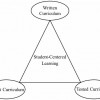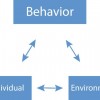 Deciding what students need to know through the development of declarative objectives, deciding what students need to able to do through the development of procedural objectives, considering how to evaluate student learning, and planning meaningful learning experiences will allow for effective instructional planning. Following these basic steps will allow educators to determine the specific goals of the lesson, the course, or the program in order to effectively prepare students. This 4-page fact sheet was written by Sarah E. Burleson and Andrew C. Thoron, and published by the UF Department of Agricultural Education and Communication, April 2014.
Deciding what students need to know through the development of declarative objectives, deciding what students need to able to do through the development of procedural objectives, considering how to evaluate student learning, and planning meaningful learning experiences will allow for effective instructional planning. Following these basic steps will allow educators to determine the specific goals of the lesson, the course, or the program in order to effectively prepare students. This 4-page fact sheet was written by Sarah E. Burleson and Andrew C. Thoron, and published by the UF Department of Agricultural Education and Communication, April 2014.
http://edis.ifas.ufl.edu/wc160
Tag: K-12 Education Programs
Inclusion of Diverse Learners in the Educational System
 Every student in the United States has the right to an education. But not every student is ready, prepared, or willing to learn. Teachers trying to fully engage students in the learning environment can find it difficult when working with students from diverse backgrounds. Forms of diversity such as socioeconomic status, ethnicity/race, learning style, cognitive ability, gender, and ability to process and store knowledge can cause an “achievement gap” between students. This 4-page fact sheet highlights effective educational strategies for engaging students in the learning environment and assisting in closing achievement gaps. Written by Eric D. Rubenstein and Andrew C. Thoron, and published by the UF Department of Agricultural Education and Communication, July 2013.
Every student in the United States has the right to an education. But not every student is ready, prepared, or willing to learn. Teachers trying to fully engage students in the learning environment can find it difficult when working with students from diverse backgrounds. Forms of diversity such as socioeconomic status, ethnicity/race, learning style, cognitive ability, gender, and ability to process and store knowledge can cause an “achievement gap” between students. This 4-page fact sheet highlights effective educational strategies for engaging students in the learning environment and assisting in closing achievement gaps. Written by Eric D. Rubenstein and Andrew C. Thoron, and published by the UF Department of Agricultural Education and Communication, July 2013.
http://edis.ifas.ufl.edu/wc150
FOR220/FR282 Addressing Sunshine State Standards in Elementary School Teacher Professional Development Workshops
FOR-220, a 6-page illustrated fact sheet by Jennifer A. Seitz, Martha C. Monroe, and Kimberly O. Thurman, use Project Learning Tree (PLT) workshops as an example of how anyone conducting professional development workshops can improve attendance and enhance program use by public school teachers by identifying and advertising the Sunshine State Standards (SSS) that the workshops address. Published by the UF School of Forest Resources and Conservation, May 2009.
http://edis.ifas.ufl.edu/FR282